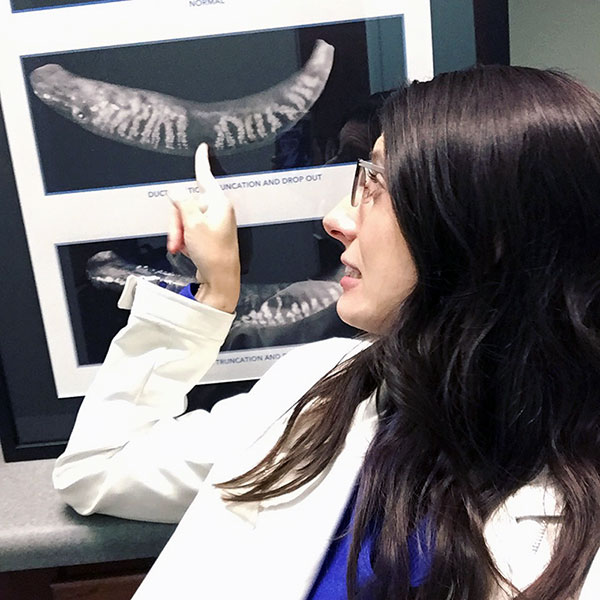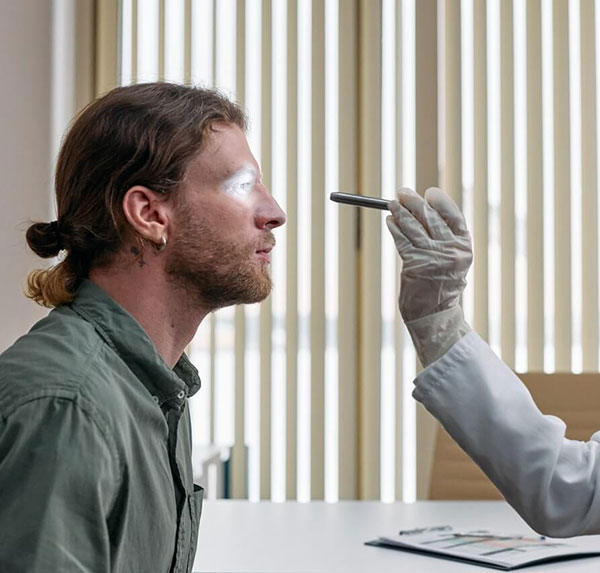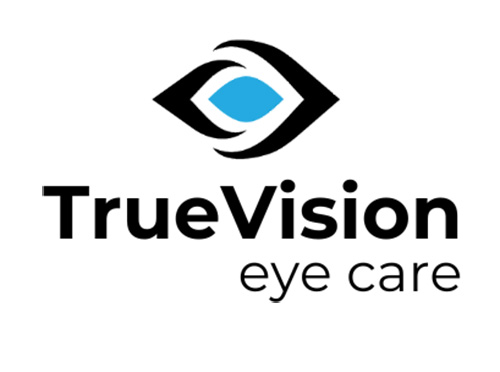Dry Eye Specialist
Looking for dry eye treatment in Morrisville or Raleigh? Our thorough evaluations are critical for properly diagnosing dry eye syndrome & determining the best solution. Call us today to schedule an exam!


Dry Eye Specialist
Looking for dry eye treatment in Morrisville or Raleigh? Our thorough evaluations are critical for properly diagnosing dry eye syndrome & determining the best solution. Call us today to schedule an exam!
Dry Eye Treatment in Raleigh & Morrisville
An estimated 30 million Americans suffer from chronic ocular surface disease (otherwise known as dry eye syndrome), and the effects can vary widely from mild discomfort to severe vision loss. The most common symptoms include:
- Fluctuating, blurry vision or a feeling of a film over the eyes, causing distorted vision
- Watery eyes
- Redness (or having to use frequent red eye drops)
- Stinging, burning, itching, or irritation
- Light sensitivity

What is happening to the eye?
There are several different reasons why you may experience dry eye symptoms. A loss of homeostasis (or balance) in our tear film and ocular surface is the main cause of discomfort. Our tears are made of two layers:
- A muco-aqueous layer that is secreted by the lacrimal gland under our eyebrow and goblet cells on the surface of the eye.
- An oil or lipid layer secreted by the meibomian glands that run vertically through our eyelids. Every time we blink, these oils cover the front of our eyes.
Most people who have dry eye syndrome have problems with tear production and secretion in both tear film layers. Effective treatment will address all layers of ocular surface dysfunction and irritation and will require the incorporation of several products into your daily routine.


Common causes of dry eye
The medications we take and the environment we live and work in all play a major role:
- Computer or device use: Blinking spreads tears across your eyes, and we blink less often when we look at digital screens.
- Medication side effects: Antihistamines, diuretics, decongestants, birth control, antidepressants, beta blockers, and acne medications all commonly cause dry eye side effects. If the prescription or over-the-counter medication you take mentions side effects such as blurry vision or dry mouth, it is decreasing tear production levels in your body and contributing to chronic dry eye syndrome.
- Systemic conditions: Diabetes, thyroid conditions, and inflammatory conditions like arthritis, Sjogren’s syndrome, and rosacea are all commonly associated with dry eye.
- Aging and hormonal changes: Tear production is linked to a delicate balance of hormones and inflammatory factors in our body, and dry eye is more prevalent as we age. Women are especially impacted during periods of hormonal changes associated with pregnancy or menopause.
- Eyelash growth serums, false lashes, eyeliner, makeup, and other cosmetic products and procedures can all block and damage the meibomian glands and cause dry eye symptoms.
Dry eye treatment in Morrisville & Raleigh, NC
We provide a range of holistic approaches to dry eye care:
- Over-the-counter artificial tears with quality ingredients that mirror our natural tear film can boost ocular comfort when used 2-4 times a day, every single day.
- Overnight artificial tears and ointments: Our eyes heal overnight as we sleep, but if you wake up with dry eyes or experience sharp pains at night, then your eyes are too dry overnight to heal properly. This could lead to eye injuries if the dry corneal cells stick to the eyelid and cause recurrent abrasions. Gel or thicker, more viscous overnight artificial tears and ointments can help your eyes properly hydrate and heal overnight.
- Nutritional supplementation to improve your natural tear production: Studies show anti-inflammatory omega-3 and 6 fatty acids and vitamin D can improve tear production and tear quality.
- Moist heat compresses: At-home microwaveable heat masks help unclog congested meibomian glands and improve oil gland secretion. Use nightly for 5 minutes and massage your eyelids gently to increase oil production.
- Avenova eyelid cleanser: Medical-grade eyelid cleansers reduce bacteria and parasitic mite colonies called Demodex, commonly found along the eyelash roots that contribute to redness and irritation with dry eye.
- Punctal plugs are small collagen or silicone cylinders inserted into the puncta, an existing drainage opening of the eyelid where tears drain into the nasolacrimal duct. When we “plug” the puncta, tears stay on the surface of the eye for a longer period.
- Prescription medicated drops used 2 times a day improve tear production and tear quality and reduce inflammation. These include Restasis and Xiidra.
- Prescription nasal spray Tyrvaya stimulates the trigeminal nerve to release tear film at every layer.
- OCuSOFT® Thermal 1-Touch™ is a medical–grade, in-office treatment that uses heat to melt blockages in clogged meibomian glands and improve gland expression. After applying heat for 10-15 minutes, the doctor will manually express congested glands to remove any residual blockages. After this procedure, heat masks will still be needed to keep glands from clogging again over time.
- Amniotic membranes are stem-cell–based treatments for wound healing. If the cornea is persistently scratched, these membranes can help the eye heal more completely.
- Advanced in-office treatments: We now offer intense pulsed light (IPL) and TearCare® in–office dry eye treatment at our Morrisville office. Both treatments are FDA–approved for treating dry eye symptoms. IPL can reduce redness, ocular surface inflammation, and rosacea of the eye and eyelid skin. TearCare uses targeted heat to melt blockages in the oil glands in your eyelids (called meibomian glands) to improve and restore the flow of your tears.
Get the care your eyes deserve
If your dry eye symptoms are persistent or severe, contact our dry eye specialists in Morrisville or Raleigh today for an evaluation. We’ll diagnose dry eye after performing an eye exam and recommend treatment options to manage your symptoms and prevent damage to your eyes.
Can dry eye cause blurry vision?
If you don’t have enough tears or you have a thin tear layer, your vision can get blurry and fluctuate throughout the day.
Can dry eye cause blindness?
In most cases, dry eye will not cause blindness. Long-term, untreated dry eye can cause inflammation and scarring of the ocular surface.
What does dry eye look like?
Dry eye may be invisible to a patient but from a patient’s perspective, it can make the eyes look red and cause watering. From the doctor’s perspective, it can cause inflammation on the surface of the eye.
Can dry eye cause double vision?
Dry eye can cause double vision if the tear layer is thin or evaporating too quickly. The double vision would most likely be visible only with an eye covered.
Can dry eye be cured?
Dry eye is a chronic condition that has to be treated and managed long term. It is not typically cured.
Can dry eye cause light sensitivity?
Dry eye can cause light sensitivity due to surface inflammation.
Can dry eye affect your vision?
If you don’t have enough tears or you have a thin tear layer, your vision can get blurry and fluctuate throughout the day.
Can dry eye affect only one eye?
Most patients have dry eye in both eyes but there are some conditions where the dry eye can be worse in one eye. These include Bell’s Palsy, tumors, or other eyelid conditions.
Why dry eye after LASIK?
The corneal nerves can be damaged after LASIK which disrupts the body’s ability to make tears.
Can dry eye cause headaches?
Dry eyes can cause eye pain which a lot of patients describe as a pressure or headache feeling around the eyes.
Can dry eye cause floaters?
Dry eyes can cause the surface of the eye to have debris that doesn’t get cleared away which some patients describe as floaters. True floaters are something that occurs inside the eye that is unrelated to dry eye.
Can dry eye cause eye pain?
Dry eye can cause eye pain due to surface inflammation.
Can dry eye cause eye twitching?
Eye twitching is typically caused by eye fatigue. Dry eye can be one cause of eye fatigue but there are many other causes.
Can dry eye cause dizziness?
Dry eye does not typically cause dizziness.
Can dry eye cause redness?
Dry eye can cause redness of the white part of the eye and the eyelids.
Can dry eye cause styes?
A lot of patients that have dry eye also have eyelid disease which contributes to styes.
Are dry eyes itchy?
Dry eyes and allergies are typically seen together and can cause itchy eyes.
